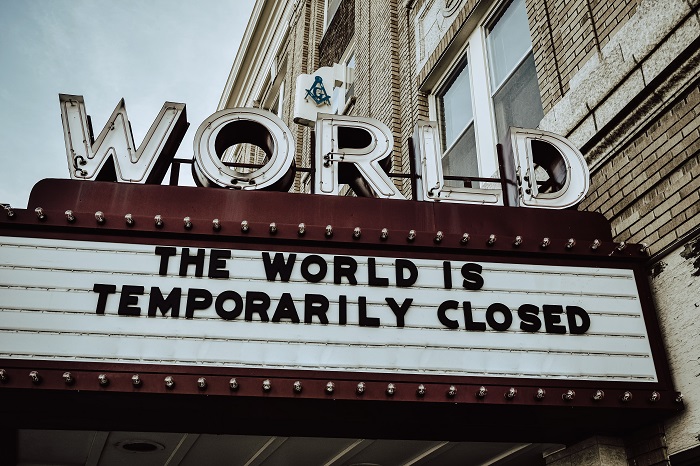
It is fair to say that while sport may be at the centre of a lot of people’s lives, its significance is vastly diminished during this public health crisis. People have been shocked at the postponement of major sports events, such as the 2020 Olympic Games, but this is a minor issue when we consider there are thousands of people around the world dying daily. However, the loss of live sport has left a chasm in the changing lives of millions of people and in particular those for whom performance sport is their livelihood.
What is the problem?
Sports teams and athletes are dependent on having people around them to train with, compete against and be supported by. Isolation makes this nearly impossible as team mates, coaches and support staff are kept at a distance and often restricted to online access. Gyms and athletic facilities have been closed and access to medical services has been minimised. Now most sporting events have been postponed, or cancelled, adding uncertainty to athletes' lives. There are huge numbers of athletes, footballers, cricketers, rugby players and so on not knowing when they will play again but also having to be fit and ready to go when they are asked to return to their sport. In all likelihood, when sport does return they will be expected to play a lot of sport in a compressed period of time. Potentially, Premier League footballers could be asked to complete this season, then start the next season almost immediately and then possibly be involved in the European Championships next June and the World Cup the year after. Track and Field athletes now face a schedule where the World Championships, European Championships and the Commonwealth Games are all scheduled to be held within a four week period in 2022.
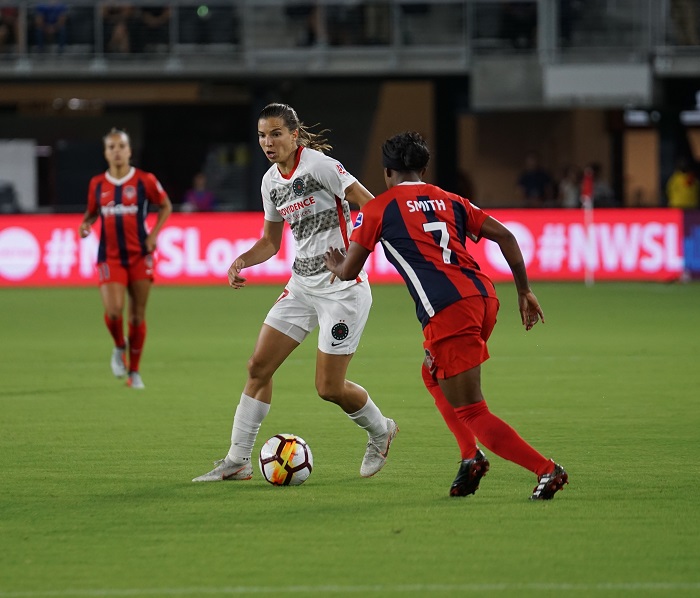
Clearly the stress load on athletes will be amplified at this time. This period of change and uncertainty over what the future will bring can increase feelings of stress and worry. Athletes will have been planning to peak at certain times and these plans are now irrelevant. There may be financial issues as the income coming into sport is falling and lottery funding may be affected. Life events such as weddings and birthday celebrations are being postponed and personal relationships are being tested. In addition to this they may potentially have more time to consider these things and find it difficult to burn off their excess energy. Motivation may be affected as their goals and targets become longer term and less pressing. There could be a tendency to become lazy and develop a ‘who cares’ attitude. Burnout in the future is a real problem with a compressed schedule being a feature of sport over the next couple of years. Burnout is also linked to the increased stress and anxiety that athletes may be currently experiencing.
What can athletes be doing?
- Be resilient. Resilience is the key, as how athletes adapt now will impact on how they perform in the future. In particular, resilience relative to how their competitors are reacting and coping. If they can adapt in a better way than their opponents then they will come back to sport better prepared.
- Adjust their goals. Athletes need to view this period as an opportunity to keep improving and while their goals won't change, the timeline for these goals will need to be adjusted.
- Use the time wisely. The additional time should be used as an opportunity to work on things that they have neglected or not been able to work on previously. For example, understanding nutrition and trying out new nutritional strategies, working on their mental skills and mental preparation, or analysing their technical performance.
- Protect against burnout. This period of staying at home offers athletes the chance to rest more, get over those injuries that have been niggling away, practice relaxation techniques and build up energy supplies for the future. The mental and physical rest will help athletes guard against, but not prevent, burnout when sport returns.
- Focus on other things. Athletes can be notorious for being shackled to their sport at the expense of everything else. Sport can breed obsession and perfectionism and now can be a time to focus on other pursuits. This may include studying something they are interested in, finding new hobbies, or just chilling out.
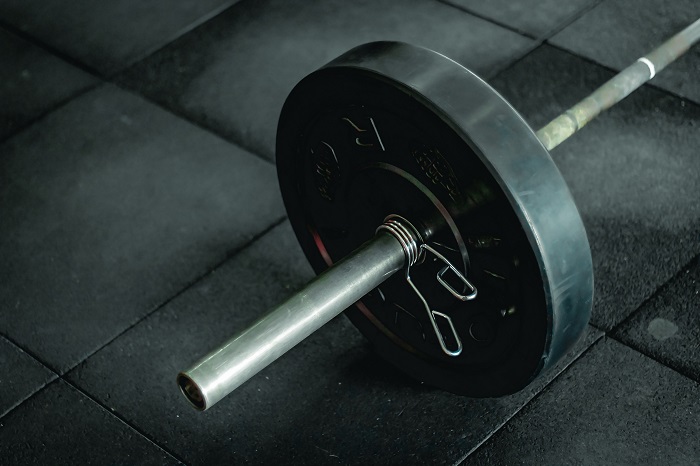
Those resilient athletes who can adapt have the potential to come through this difficult period stronger and better prepared for the challenges to come. There is also the problem of boredom and lack of stimulation. However, as many families forced to stay at home are finding out, boredom can be a powerful stimulus for creativity and innovation. Ultimately the most important is keeping safe and healthy and maintaining a positive mindset.
Explore our FREE resources
-
Learning from sport burnout and overtraining
Learn more to access more details of Learning from sport burnout and overtrainingSport can place high levels of stress on athletes, coaches and others involved. If unable to cope with these stresses they may be vulnerable to developing burnout. This free course, Learning from sport burnout and overtraining, examines burnout in sport from various perspectives including both the coach’s and athlete’s perspective. Drawing on ...

Free course
24 hours
Level: 2 Intermediate
-
Exercise and mental health
Learn more to access more details of Exercise and mental healthEach year thousands of pounds are spent on medications to treat conditions such as anxiety and depression. These medications often have negative side effects. Exercise is an alternative treatment that is low cost and has few side effects. In this free course, Exercise and mental health, we will look at the links between exercise and improved ...

Free course
2 hours
Level: 2 Intermediate
-
Exploring the psychological aspects of sport injury
Learn more to access more details of Exploring the psychological aspects of sport injuryHave you ever experienced a sport injury? Have you ever thought there could be a psychological dimension to sport injuries, as well as a physical one? Sport injury is relatively common among sport and exercise participants, and while the physical impact of injury is often easy to recognise, the psychological impact is less obvious. In this ...

Free course
24 hours
Level: 2 Intermediate
-
The evolution of sports medicine over the last 50 Years: From the wet sponge to holistic care
Read now to access more details of The evolution of sports medicine over the last 50 Years: From the wet sponge to holistic careDr Caroline Heaney is a Senior Lecturer in Sport and Fitness at The Open University. She discusses the advances made in sports medicine and what the future holds.
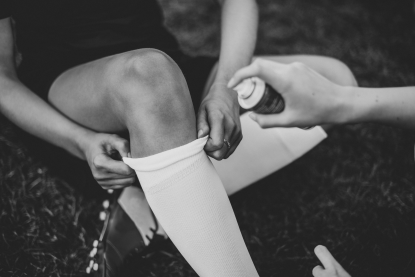
Article
Level: 1 Introductory
-
Recovery strategies in sport and exercise
Learn more to access more details of Recovery strategies in sport and exerciseThe ability to recover quickly from an intensive training session or match can be extremely advantageous to sports performers. Sport and fitness participants are increasingly using strategies such as ice baths and compression clothing to enhance their recovery from intensive exercise, but how effective are these strategies? Do they really speed ...

Free course
8 hours
Level: 2 Intermediate
-
Communication and working relationships in sport and fitness
Learn more to access more details of Communication and working relationships in sport and fitnessThis free course, Communication and working relationships in sport and fitness, explores the personal skills that underpin so much work in sport and gyms. We often hear employers refer to the importance of these interpersonal relationships or ‘soft skills’ in sport and fitness, and in this unique course you’ll build valuable insights into ...

Free course
24 hours
Level: 1 Introductory
-
Exploring sport coaching and psychology
Learn more to access more details of Exploring sport coaching and psychologyThis free course, Exploring sport coaching and psychology, investigates how scientific and management ideas contribute to success while also taking you on a journey through unique sporting case studies and insights that will change how you view and study sport. You will consider how the mind, the body, the environment and training techniques all...

Free course
24 hours
Level: 1 Introductory
-
50 years of sport and fitness
Read now to access more details of 50 years of sport and fitnessAs The Open University celebrates its 50th year, discover how sport and fitness has rapidly developed since 1969. In this series of articles, we look back at the advances made in technology and sports medicine, successes of British sportswomen, world records and changes in various sports and fitness activites.

Article
Level: 1 Introductory
-
Coaching others to coach
Learn more to access more details of Coaching others to coachAre you responsible for supporting sport and physical activity coaches to become inspirational and excellent in their practice? This course is designed for coach developers, educators, mentors and tutors who support coaches to improve. You will explore how people learn, what are the skills and qualities of an effective coach of coaches, as well ...

Free course
24 hours
Level: 2 Intermediate
-
The science of nutrition and healthy eating
Learn more to access more details of The science of nutrition and healthy eatingExamine the science behind nutrition, covering aspects of biology, chemistry and physics as well as giving some insight into healthier eating. Reading food labels, choosing healthier foods, hydrating appropriately and understanding how we taste food will allow you to be more informed about the choices you make about the food you eat.

Free course
24 hours
Level: 1 Introductory
-
Past and present: A 50-year celebration of British Sportswomen
Read now to access more details of Past and present: A 50-year celebration of British SportswomenJessica Pinchbeck, a Senior Lecturer in Sport and Fitness at The Open University, reflects on her sporting heroes and charts the success of female sportswomen.

Article
Level: 1 Introductory
More on Coronavirus
-
Coronavirus: The Lowdown
Read now to access more details of Coronavirus: The LowdownThe Covid-19 pandemic is affecting almost everyone worldwide. We've pulled together some content on the virus and how to cope in these unprecedented times.

Article
Level: 1 Introductory
-
Grief and COVID-19: Mourning what we know, who we miss and the way we say goodbye
Read now to access more details of Grief and COVID-19: Mourning what we know, who we miss and the way we say goodbyeThis article explores experiences of children and young people’s death anxiety as a result of COVID-19, and the impact of the pandemic and death on staff working in care establishments, and how grief was reported in UK newspapers.

Article
Level: 1 Introductory
-
Grief during COVID-19: supporting our colleagues to return to work and thrive following loss
Read now to access more details of Grief during COVID-19: supporting our colleagues to return to work and thrive following lossEven if we have been fortunate enough not to experience loss ourselves during this pandemic, there may be colleagues who have. So, how can we support grieving colleagues during these challenging times?

Article
Level: 1 Introductory
-
The Special Adviser’s Tale, or Political Storytelling in the Time of Covid
Read now to access more details of The Special Adviser’s Tale, or Political Storytelling in the Time of CovidWhen Dominic Cummings broke the COVID-19 lockdown rules, how did the attempts to 'change the narrative' by Cummings and the government defy the logic of storytelling?

Article
-
Public health communication during a pandemic
Read now to access more details of Public health communication during a pandemicWe've all seen the government slogans 'Stay home' and 'Stay Alert' but are these effective? Dr Korina Giaxoglou explores the three main elements to the design of ‘good’ public health messaging.

Article
Level: 1 Introductory
-
The impact of COVID-19 on linguists and their mental health
Read now to access more details of The impact of COVID-19 on linguists and their mental healthThe coronavirus pandemic of 2020 has impacted on every area of our lives. Severine Hubscher-Davidson explores what the mental health impact of coronavirus among linguists can tell us about the mental health impact of coronavirus in society.

Article
Level: 1 Introductory
-
Frequently asked questions about COVID-19 relating to cancer
Read now to access more details of Frequently asked questions about COVID-19 relating to cancerDiscover how COVID-19 will impact new cancer treatments and ongoing clinical trials, access to drugs and smokers.

Article
Level: 1 Introductory
-
How does COVID-19 affect cancer treatment?
Read now to access more details of How does COVID-19 affect cancer treatment?Cancer researchers working at The Open University answer cancer-related questions about the new coronavirus in this series of articles...

Article
Level: 1 Introductory
-
Ask the experts: Coronavirus fake news & medical terminology
Read now to access more details of Ask the experts: Coronavirus fake news & medical terminologyA discussion and Q&A session on COVID-19 with experts from the OU STEM faculty.

Article
Level: 1 Introductory
-
Fake news during COVID-19
Read now to access more details of Fake news during COVID-19Dr Kaustubh Adhikari, Lecturer in Statistics at The Open University, interviews science integrity expert Dr Elisabeth Bik.

Article
Level: 1 Introductory
-
How COVID-19 challenges our notion of a good death
Read now to access more details of How COVID-19 challenges our notion of a good deathErica Borgstrom, a medical anthropologist and lecturer at The Open University, explores why death from coronavirus is not the type of death we expect.

Article
Level: 1 Introductory
-
How does the human body fight a viral infection?
Read now to access more details of How does the human body fight a viral infection?Some individuals generate an effective immune response to COVID-19. Why? Discover the immune response to viral infection in this explainer article...

Article
Level: 2 Intermediate
-
Five tips for relaxing during difficult times
Read now to access more details of Five tips for relaxing during difficult timesModern life can leave many of us feeling stressed out. Here Dr Mathijs Lucassen offers five tips so that you can relax.

Article
Level: 1 Introductory
-
What is COVID-19?
Read now to access more details of What is COVID-19?What exactly is COVID-19 and where did it come from? This short article explores the Coronavirus pandemic of 2020.

Article
Level: 1 Introductory
-
What is a virus?
Read now to access more details of What is a virus?There's been a lot in the news recently about viruses. So what is a virus and what do we know about the novel coronavirus that causes COVID-19?
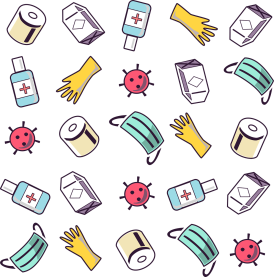
Article
Level: 2 Intermediate
-
How to age well while self-isolating
Watch now to access more details of How to age well while self-isolatingPeople have been made to isolate to delay the spread of COVID-19 but there are several risks of self-isolation to older people. This article and video offer some tips on how to combat these.

Video
-
Simplistic models for understanding Coronavirus: Helpful or harmful?
Read now to access more details of Simplistic models for understanding Coronavirus: Helpful or harmful?Do models showing the spread of Covid-19 actually help us understand it better, or are they overly simplistic and potentially dangerous?

Article
Level: 1 Introductory
-
Panic buying and how to stop it
Read now to access more details of Panic buying and how to stop itDr Volker Patent looks at a tale of emerging norms, signalling and selective information processing.

Article
Level: 1 Introductory
Rate and Review
Rate this article
Review this article
Log into OpenLearn to leave reviews and join in the conversation.
Article reviews